Indigenous Law and Justice Hub
The Indigenous Law and Justice Hub (ILJH) brings together legal experts and community leaders to support Indigenous advocacy and self-governance. We are educators who play a central role in developing our law students’ understandings of Indigenous cultures, legal systems, and Indigenous experiences of settler law.
News and Events from the Hub and our Friends:

Naarm Law Students on the Voice
The Indigenous Law and Justice Hub partnered with Naarm Law Students on Voice in 2023 to deliver Referendum information sessions on the Voice to Parliament proposal. Over 90 MLS students collaborated to deliver a community legal education program on the 2023 Referendum.
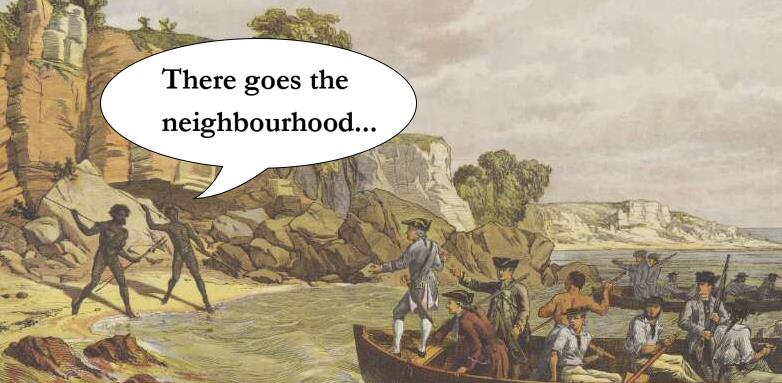
White Noise of settler law
White Noise of settler law is the Hub's hallmark event series and podcast. It features a series of justice talks with leading Indigenous academics, legal practitioners and community as guest speakers for a look at how the while settler law of the justice system continues to affect Indigenous people.

Classroom Photo Mural Initiative
The purpose of the initiative is to acknowledge the long, complex (and important) history of lawful relations between Indigenous and Anglo-Australian laws and peoples. The Law School acknowledges that Anglo- Australian law is marked by refusal and violence, and has often been found wanting, when asked to meet with Indigenous laws. But we also want to recognise that Indigenous peoples in Australia have resisted, argued with and transformed the law we teach and learn every day in the MLS Building.
Content Warning: This gallery may contain images or names of Aboriginal and Torres Strait Islander people now deceased.
What does the Indigenous Law and Justice Hub mean to you?
Listen to leading Indigenous justice advocates talk about the value of the Hub to their work:

Join the Team!
Want to come and work with us? We're always looking for Indigenous scholars and anyone who feels like they would be a good fit for the Hub.
Send us an email at mls-indigenous@unimelb.edu.au to have a chat about what you can bring to the team!
We are educators who play a central role in developing our law students’ understandings of Indigenous cultures, legal systems, and experiences of settler law.
In 2019 the Council of Australian Law Deans made a Statement on Australian Law’s Systemic Discrimination and Structural Bias Against First Nations Peoples, stating that:
"CALD urges all Australian law schools to work in partnership with First Nations peoples to give priority to the creation of culturally competent and culturally safe courses and programs. In so doing, CALD acknowledges the part that Australian legal education has played in supporting, either tacitly or openly, the law’s systemic discrimination and structural bias against First Nations peoples."
The Hub is seeking to transform Australian legal education so that legal practitioners are equipped with the skills and understandings to support First Nations peoples in their justice work.
Hub Electives at Melbourne Law School
The Hub offers a range of innovative elective subjects to Melbourne Law School Students.
Traveling Subjects
This subject is an experiential and ‘On-Country’ learning experience. Through on Country experience and engagement with a range of organisations and practitioners, students will consider key and emerging issues of access-to-justice that lawyers must critically engage with in their work, with particular attention to First Nations justice. Watch the 2023 Darwin Trip highlights here:
Dr Eddie Cubillo and Jaynaya Dwyer won the 2023 Teaching Excellence award for their incredible work on this subject.
Indigenous Law in Aotearoa and Australia
Taught intensively in Aotearoa- New Zealand, this subject aims to equip students with expert knowledge on current Indigenous legal issues in Aotearoa and Australia and how each settler jurisdiction’s legal institutions addressing the ongoing presence of Indigenous laws, as well as challenging students to consider how this might be better done.

2022 class staying on Marae in Rotorua, Aotearoa
Classroom Subjects
Treaty: Indigenous Settler Agreements
Over the last 10 years, the ways in which the Aboriginal Peoples and people of Victoria have been working with the state of Victoria has been directed towards establishing institutions of treaty and agreement making. This research elective is being set up in order to address how JD students might contribute to the 'treaty' and 'truth and justice' processes through undertaking directed research projects. The topics of engagement are
- The Yoorrook Justice Commission
- The First Peoples Assembly
- The Treaty Authority
- The First Peoples - State Relations (FPSR) Group, DPC, Vic Gov.
The objective of this research elective is to think carefully about how research for Indigenous institutions is conducted; to develop skills in researching to a 'brief'; and to reflect on the particular forms of knowledge production appropriate to Indigenous-centred university research. The immediate co-ordinator of this research stream will be Shaun McVeigh, in close association from the Indigenous law and justice hub and collaborators.
Law and Indigenous Peoples provides students with an introduction to the United Nations Declaration on the Rights of Indigenous Peoples and key legal policy areas impacting First Nations rights in Australia . We are joined by a range of experts throughout semester to consider policy areas across criminal law, statutory child protection, land rights and intellectual and cultural property.

Law and Indigenous Peoples students with Les Malezer, former chair of the Global Caucus of Indigenous Peoples negotiating the UNDRIP
-
Clinical Subjects
Indigenous Legal Advocacy Clinic
In this subject student get real experience supporting Indigenous organisation or campaigns by providing research support on a law or advocacy issue impacting First Nations people.
Curriculum Review
The JD Indigenous Curriculum Review was commenced through a recommendation of the 2019 Review of MLS Indigenous Programs conducted by Maureen Teehan and Shaun Ewen.

The Hub works with a Committee of academic staff to review existing compulsory curriculum and work with subject coordinators and teaching teams to develop content and teaching methods that showcase Indigenous law and knowledge.
JD Curriculum Review Case Study
Legal Method and Reasoning
A compulsory two week intensive which introduces new law students to foundational legal skills. Through the review three full days of teaching on Aboriginal and Torres Strait Islander experiences of law were introduced to the subject, as well as reflective assessment relating to Indigenous experiences of law. Each year, students engage with new case study on an issue of First Nations justice lawyers can meaningfully contribute to, with an expert guest panel. In 2023, it was on the Victorian Treaty Assembly, joined by Assembly members and lawyers. This course seeks to centre First Nations experiences of law, through ongoing practice of Indigenous legal systems, right from the outset of JD studies.
For inquiries about the curriculum review contact Jaynaya Dwyer (Research Fellow at the Indigenous Law and Justice Hub).
Advocating for Legal Education Forms
The Hub advocates for changes to legal education across the profession to enhance the justice services First Nations people can access in Australia.
In 2022 Dr Cubillo, on behalf of the Indigenous Law and Justice Hub gave evidence at the Yoorrook Justice Commission, where he addressed the need to change law school curriculums and legal accreditation. We called for:
- Introduction of a mandatory subject for all law students being admitted in Australia on Indigenous history and law; a ‘Priestley 12’
- Ongoing profession development for lawyers on cultural safety and cultural capability
- Specialist accreditation for lawyers working predominately with Aboriginal and Torres Strait Islander people
You can read the full witness statement or watch the hearing on the Yoorrook Justice Commission Website. You can also read the Hub's Submission to the Yoorrook Justice Commission: Legal Education Reforms for First Nations Justice, Feb 2024.
For more information about the Hub’s agenda for Legal Education reform read our article on Indigenous Programs at Law School published in the Law Institute Journal NAIDOC special edition.

The Hub aims to produces resources that foster research and access, including videos, submissions, projects and other content.
-
Videos
Indigenous Law and Justice Hub's video recordings features academics, journalists and legal practitioners discussing and engaging with significant issues faced by Indigenous people and the law.
-
White Noise of settler law justice talks
White Noise of settler law is the Hub's hallmark event series and podcast. It features a series of justice talks with leading Indigenous academics, legal practitioners and community as guest speakers for a look at how the white settler law of the justice system continues to affect Indigenous people.
-
Recommended Reading List
The Indigenous Law and Justice Hub have curated a list of recommended readings from leading academics and scholars on Indigenous legal issues, experiences and perspectives.
-
ILJH Reading Group
A reading and community-building project with a through-line of ethics of solidarity - practicing accountability, responsibility and speaking up.
-
Further Resources
Further sources of information and assistance on Indigenous law and justice matters.
-
Professional Development
The Hub is available to run seminars, including continuing professional development (CPD) events for lawyers, on issues within our areas of experience and research interest.
The Indigenous Law and Justice Hub ('The Hub') is passionate about community-designed research which is designed to benefit Aboriginal and Torres Strait Islander communities.
The Hub’s key priorities will be advanced through its research-focused and clearing-house functions, especially in the areas of justice and treaty, but also engaging broader issues of legal pluralism and Indigenous self-determination. The thematic foci will adapt to changes in Indigenous communities’ priorities and to encompass matters of current interest.
The Hub’s research skills and experience include:
-
In/Justice
- Incarceration
- Over-representation
- Self-determination
- Deaths in custody
- Missing and murdered women and children
- Juvenile detention
-
Treaty
- Treaty making processes and governing law
- Design of Indigenous representative institutions
- Law and jurisdiction of Indigenous peoples
- Sovereignty and legal pluralism
-
Submissions
Read the recent submission by the Indigenous Law and Justice Hub on issues affecting Indigenous people in the law.
-
Naarm Law Students On Voice
In 2023 the Indigenous Law and Justice Hub partnered with Naarm Law Students on Voice, who delivered high-quality Referendum information sessions on the Voice to Parliament proposal.
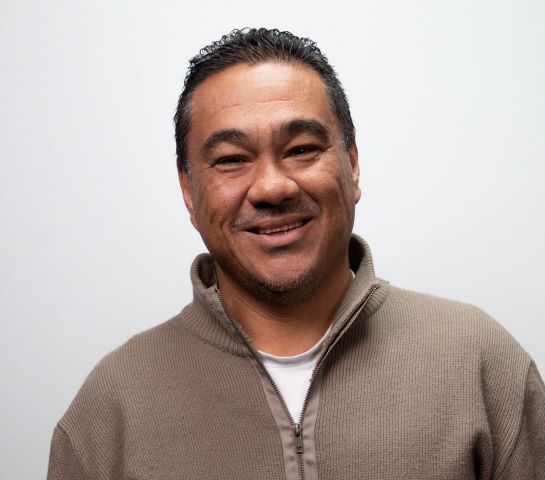
Dr Eddie Cubillo
Director - Indigenous Law and Justice Hub
Dr Eddie Cubillo is an Aboriginal man with strong family links in both the urban and rural areas throughout the Northern Territory. He is a descendant of the Larrakia, Wadjigan and Central Arrente peoples. Eddie is a lawyer, admitted to the Supreme Court of the Northern Territory and is recognised nationally and internationally for his experience and expertise in Indigenous governance and justice service delivery to First Nations Peoples.
In 2022 he completed his PhD thesis titled What Does ‘Self-determination’ mean in the context of legal service provision for Aboriginal and Torres Strait Islander Legal Services, which involved interviews with key stakeholders in the ATSILS movement and won the UTS Chancellors award for outstanding thesis on the grounds of the significance of the work and the quality of the thesis.
Dr Cubillo has been a former Chair of the North Australian Aboriginal Justice Agency (NAAJA) and the Northern Territory Aboriginal Justice Advisory Committee. In 2002 he was elected to the ATSIC Yilli Rreung Regional Council, and subsequently became the Chair. In 2010 Dr Cubillo was appointed the Anti - Discrimination Commissioner of the Northern Territory. He then took on the role of Executive Officer with National Aboriginal & Torres Strait Islander Legal Service (NATSILS) where he championed the rights of Indigenous Australians in a legal context. In 2015 he was named the National Indigenous Legal Professional of the year and in 2016 attended Geneva on a UN Indigenous fellowship. In 2017 he took up an opportunity to work on the Royal Commission into the Protection and Detention of Children in the Northern Territory as the Director of Community Engagement.
Amongst Eddie's extensive engagement, he currently sits as an Independent Representative on the Justice Policy Partnership under the Closing the Gap Agreement, Co-Chairs the Indigenous Governance Awards for Reconciliation Australia and is a member of the panel appointing members to the Victorian Treaty Authority.
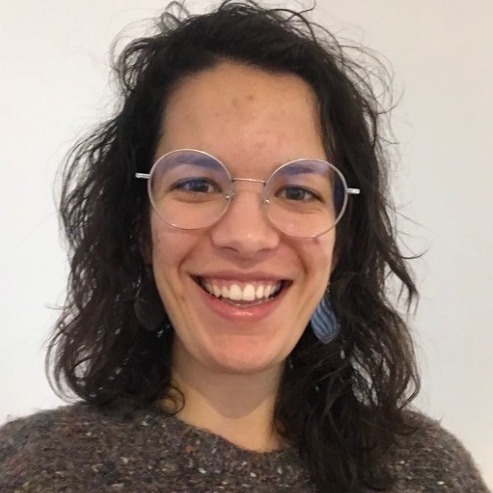
Jaynaya Dwyer
Lecturer - Indigenous Law and Justice Hub
Jaynaya is a non-Indigenous lawyer of Anglo-Indian and Irish heritage, who grew up on Wurundjeri Country. She is lucky to be learning about First Nations justice and decolonisation of legal practice at the Hub, where she undertakes broad work on the review to Indigenise and decolonise the MLS Juris Doctor Curriculum, hosts the White Noise podcast and teaches a range of innovating elective subjects on First Nations Rights. Jaynaya is passionate about developing the capacity of MLS graduates to support First Nations justice movements. Jaynaya was previously a Research Assistant at MLS Clinics, and brings a strong drive to enhance interpersonal skills, empathy and reflective practice in future-lawyers.
Prior to joining the Hub, Jaynaya was living on Ngunnawal Country, working as a Legal Policy Officer in the Commonwealth Attorney General’s Department. During this time Jaynaya took on the role of the Department’s Diversity and Inclusion Advisor, leading the development of the Department’s Diversity and Inclusion Strategy, as well as other organisational strategy, policy and initiatives to restructure government’s ways of doing business and centre voices traditionally excluded from policy development.
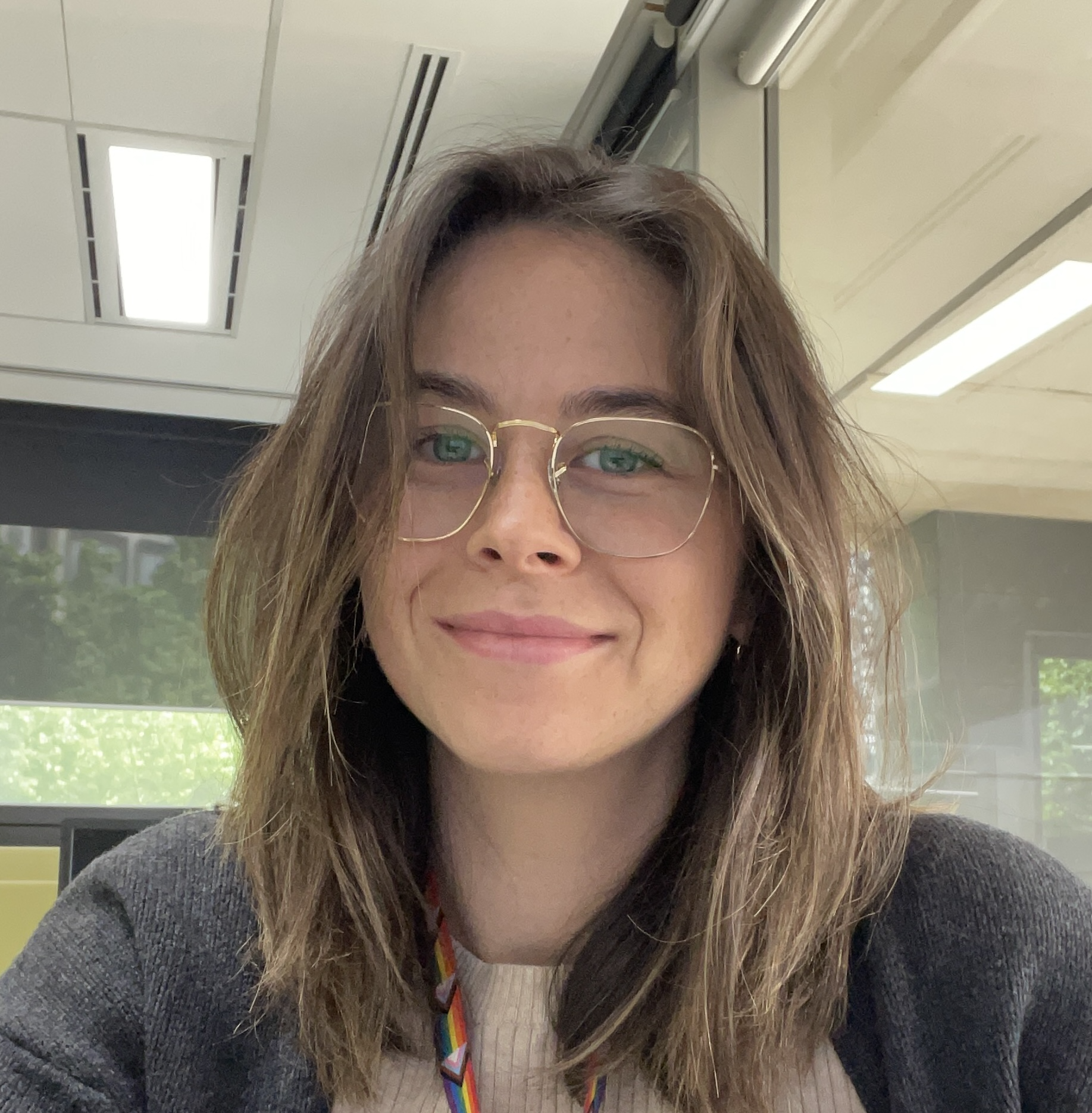
Elyse Keyser
Program Coordinator - Indigenous Law and Justice Hub (currently on Maternity Leave)
Elyse joined the Law School in 2021 where she worked with the Melbourne School of Government and as Executive Officer before moving to the Hub in 2023. Prior to that, Elyse was at a not-for-profit for a number of years working in Government Relations and Advocacy, primarily for small businesses and industry. She now coordinates across the Hub's many initiatives and areas, including events, research, education, engagement, projects, strategy and governance.
Elyse has a Bachelor of Arts majoring in International Relations and Political Science at the University of Queensland, and a Masters in Public and Social Policy from Macquarie University. She is a non-Indigenous woman with anglo-european heritage who grew up on Turrbal-Yuggera land, and now lives and works on Wurundjeri Country.
Members of the Indigenous Law and Justice Hub are close collaborators in academic and advocacy work. In addition to various project collaborations across members various areas of interest, members regularly meet together through the MLS Indigenous Legal Scholarship Community of Practice.
If you are interested in becoming a member of the Hub please contact mls-indigenous@unimelb.edu.au
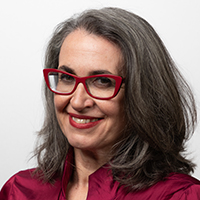
Professor Ann Genovese
Ann Genovese is a Professor at the Melbourne Law School. She teaches and researches in the fields of public law, history, and jurisprudence. She is a Law and Humanities specialist; with expertise in explaining and caring for the archival sources, and techniques, that show how Australian people have lived with their law. Her work has been integral to the establishment of an emergent practice – jurisography. She publishes widely across feminist jurisprudence, history, Indigenous and non-Indigenous relations, law and interdisciplinary fields. She has been the recipient of six ARC grants over the course of her career, often working with institutions, to research the history, theory and lived experiences of the relations between Australian law and its diverse publics. Her publications include: Rights and Redemption: History, Law, Indigenous People (Sydney: UNSW Press, 2008) (with Curthoys and Reilly); Sovereignty: Frontiers of Possibility (University of Hawaii Press, 2013) (with Evans, Wolfe, Reilly); Australian Critical Decisions: Remembering the Koowarta and Tasmanian Dam Case (Routledge, 2017), The Court As Archive (ANU Press, 2019) (with Rubenstein and Luker); and Feminist Jurisography: Law, History, Writing (Routledge, forthcoming 2022).
Ann welcomes conversations about supervision and collaborations, on topics and methods related to Indigenous- non-Indigenous relations; Australian archival stories and ethics; and feminist and Queer jurisprudence and history.

Professor Heather Douglas
Heather Douglas joined Melbourne Law School in 2021 and teaches and researches in the area of criminal law and procedure. Heather researched the operation and application of law in the context of Australian indigenous–settler relations in her PhD and her book, Indigenous Crime and Settler Law: White Sovereignty After Empire, co-authored with Mark Finnane which was published by Palgrave in 2012. Heather has long had an interest in the experience of law school for Aboriginal and Torres Strait Islander students, and has written a number of articles on this topic. She is currently working on an edited collection with Nicole Watson titled Legal Education Through an Indigenous Lens: Decolonising the Law School. Also with Dr Nicole Watson, she assisted in the coordination of the Indigenous Judgments Project and the resulting co-edited collection, Indigenous Legal Judgments: Bringing Indigenous Voices into Judicial Decision Making, that was published by Routledge in 2021.
Alex Bowen
Alex is a PhD candidate in the school of languages and linguistics, University of Melbourne, and a Research Fellow with the Hub. He grew up as a white settler on Wurundjeri country, graduated from MLS, and practised law in Victoria and the Northern Territory, particularly working in circuit courts in East Arnhem Land with Yolŋu and Warnindilyakwa people. His research focuses on cross cultural communication about law and justice in the context of colonial and monolingual assumptions. Alex has a range of experience of learning cross-culturally with Aboriginal experts in language and law in the Northern Territory and Western Australia about justice, communication, translation and interpreting.
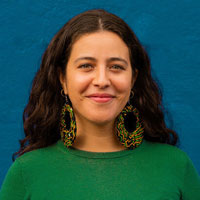
Kate Jama
Kate Jama is a PhD Candidate at Melbourne Law School and Research Fellow with the Melbourne Centre for Law and the Environment. Kate’s research examines how Australian settler law and technology work together to enable extractive practices to the seabed surrounding so-called Australia. Kate’s research occurs in tandem with her creative arts practice. In 2023, in collaboration with Timmah Ball, Kate launched the publication Aqueous Archives. Through poetry and non-fiction, Aqueous Archives illuminates stories, histories and knowledges that exists beneath colonial narratives connected to the Fremantle port, land development, the ocean and migration. Kate is a co-convenor of the New Reading Group.
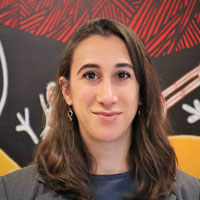
Sarah Schwartz
Sarah Schwartz (BA LLB LLM) is a lawyer and writer focusing on the harms of police and prisons, Aboriginal deaths in custody and rebellious and movement lawyering. She is a Lecturer at Melbourne Law School and teaches the clinical subject Indigenous Legal Advocacy Clinic. She is also the Principal Managing Lawyer of the Wirraway Practice at the Victorian Aboriginal Legal Service and represents clients in the areas of police accountability, the rights of people in prison and coronial inquests into Aboriginal deaths in custody. Sarah is committed to learning from and walking alongside her clients and supporting their fight for systemic change, accountability, and justice. Sarah was awarded a John Monash Scholarship in 2019 and completed a Master of Laws at Harvard Law School focusing on critical race theory, policing, prisons and movement lawyering. Sarah has published and presented on the harms of privatised prison healthcare, accountability for Aboriginal deaths in custody, police accountability, and the criminalisation of Aboriginal children in state residential care.
Recent publications include (selected):
- 'Prison healthcare as punishment - the Killing of Veronica Nelson' (2024) 253 Overland Literary Journal [forthcoming]
- 'Paying for Freedom: Community Payment of Fines as Collective Resistance to Australia's Criminalisation of Race and Class' (2024) 47(1) University of New South Wales Law Journal [forthcoming]
- '3 ways the Victorian government’s bail reforms fall short – and why it must embrace ‘Poccum’s Law’ (16 August 2023) The Conversation, (with E Russel and A Lachsz)
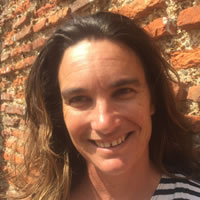
Dr Olivia Barr
Dr. Olivia Barr is an Associate Professor at Melbourne Law School. She is a non-Indigenous lawyer-turned-academic, who grew up on Whadjuk Noongar Boodja and now lives on Wurundjeri Country. She has previously worked as a government solicitor, in law reform and for the United Nations Permanent Forum on Indigenous Issues, and studied at UWA, UBC (Canada) and Melbourne. Olivia researches in the interdisciplinary field of law and humanities, with expertise on the many relationships between law, place and sovereignties.
Olivia has three main research areas. She has had a long-standing interest in the overlooked topic of legal movement and its role in colonisation, including the role of walking, political marches and public ceremonies, as captured in her book, A Jurisprudence of Movement: Common Law, Walking, Unsettling Place (Routledge, 2016). She is interested in mapping out a new field of inquiry on law and place, which links legal theory with several other disciplines, including geography, art, architecture and geology, to offer insights into the localised, grounded and overlapping nature of multiple laws. She also conducts research that applies these theoretical insights to more practical legal settings, including investigating future possibilities for state recognition of First Nations’ sovereignty, sovereignties, and self-government.
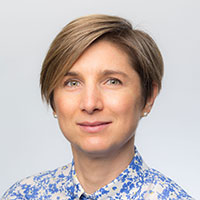
Dr Erin O’Donnell
Dr Erin O’Donnell is a water law and policy expert, recognized internationally for her research into the legal rights for rivers and Indigenous rights to water. Since 2018, Erin has been a member of the Birrarung Council, the voice of the Yarra River in Melbourne. In 2023, Erin commenced an ARC-funded research fellowship to explore the opportunity of treaty to address aqua nullius, increase Traditional Owner power and resources in water, and create more sustainable and legitimate settler state water laws.
Recent papers on topics that relate to the work of the Hub:
- E O’Donnell (2023) Water sovereignty for Indigenous Peoples: Pathways to pluralist, legitimate and sustainable water laws in settler colonial states. PLOS Water 2(11): e0000144.
- S Jackson, E O’Donnell, L Godden, & M Langton (2023). Ontological Collisions in the Northern Territory’s Aboriginal Water Rights Policy. Oceania, 93(3), 259–281.
- E O’Donnell, M Kennedy, D Garrick, A Horne and R Woods (2023) ‘Cultural water and Indigenous water science’ Science 381(6658), 619-621.
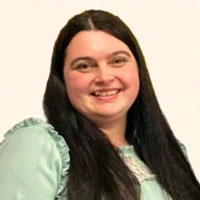
Cassandra Seery
Cassandra Seery is the Legal Research Skills Advisor in the Ian Malkin Legal Academic Skills Centre at Melbourne Law School (MLS) and has also taught at MLS as a sessional lecturer. She teaches Indigenous Legal Research workshops and seminars across Melbourne Law School and has a strong interest in anti-colonial legal pedagogy. She was previously a Lecturer in Law and Indigenous Studies at the National Indigenous Knowledges Education Research Innovation (NIKERI) Institute at Deakin University (formerly known as the Institute of Koori Education (IKE)) specialising in First Nations Justice and Children's Rights and also served in the Victorian Public Service, focussed on Aboriginal Affairs and self-determination with the Magistrates' Court of Victoria, Department of Health and the Department of Premier and Cabinet. Cassandra also worked with Amnesty International Australia's Indigenous Peoples' Rights Team and a researcher and campaigner before joining their National Board and serving as Deputy Chair (2020-2023).
Cassandra has a Bachelor of Arts (Dist) / Bachelor of Laws (Hons), Graduate Diploma of Legal Practice, Master of Laws and is currently a PhD Candidate at the University of Melbourne.
Advisory Council members
- Clinton Benjamin (Bardi, Yawuru, and Kija), National Native Title Council
- Professor John Borrows (Chippewa), University of Victoria Faculty of Law, British Columbia
- Keshi Moore, LSS Indigenous Student Representative
- Nathan Newcastle, LSS Indigenous Liaison Officer
- Tim Goodwin (Yuin), Barrister
- Tony McEvoy (Wirdi), Barrister
- Sana Nakata (Torres Strait), Faculty of Arts
- Professor Pip Nicholson, Deputy Vice-Chancellor (People and Community) and Deputy Provost
- Elly Patira (Gunai and Ngapuhi), Department of Premier and Cabinet (Victoria)
- Karri Walker (Nyiyparli), First Peoples' Assembly of Victoria
Terms of Reference
The role of the Advisory Council for the Indigenous Law and Justice Hub involves:
- Providing general strategic advice to the Hub and its staff
- Assisting in driving the direction of the Hub’s activities, relevant to critical Indigenous legal issues and community requirements.
- Facilitating broadening the Hub’s reach of influence and opportunities for further resourcing including through community organisations, industry, research organisations and the philanthropic sector.
- Advocating for the Centre’s activities with government and community organisations.
2023
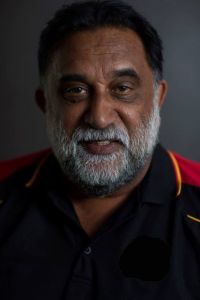
Les Malezer
Les Malezer is descended on his father’s side from the Gubbi Gubbi / Butchulla peoples of the Mary River and Fraser Island region of southeast Queensland and, on his mother’s side, from the Gamiliroi peoples of northwest NSW.
As school captain, he matriculated from Inala State High School in Brisbane in 1969. He was a skilled sportsman in cricket, rugby league, tennis and basketball. He began studies in Engineering at the University of Queensland but discontinued after being faced with racism at both study and work.
Les Malezer’s working career commenced in 1972 with the Commonwealth Department of Labour and National Service in Brisbane, pursuing training and work opportunities for Aboriginal and Torres Strait Islander youth. He was then transferred to Canberra after the Whitlam government was elected into the newly-appointed Department of Aboriginal Affairs soon.
In the public service he quickly advances to senior positions in the Commonwealth public service before joining to the Queensland government to become head of Aboriginal and Torres Strait Islander Affairs under the Goss administration in 1990.
Apart from his career in government Les Malezer also worked extensively in community-controlled organisations at the local, regional, national and international levels, and he held important posts in representative bodies of Aboriginal and Torres Strait Islander peoples.
From his early years in Brisbane he participated in community organisations, meetings and rallies, as a member of the health services, legal services, housing organisations and welfare groups.
He became the Chairperson of the Foundation for Aboriginal and Islander Research Action (FAIRA) in 1974 and has continued to hold that position on many occasions when not in conflict with his employment. He continues as the Chairperson of FAIRA in the present times.
Les Malezer became Secretary General of the National Aboriginal Conference in 1984, joined the Royal Commission into Aboriginal Deaths in Custody in 1989, and was appointed as Executive Assistant to the Chairman of the Aboriginal and Torres Strait Islander Commission (ATSIC) in 2002.
In 2010, he was elected Co-Chair of the National Congress of Australia’s First Peoples. He served two terms as Co-Chairperson in this role.
He has expert knowledge regarding Indigenous Peoples of the world and the relevant human rights standards adopted at the international level and in Australia. Les Malezer is well known internationally for his work on human rights, and raising the profile of Indigenous Peoples in the United Nations and the Commonwealth Heads of Government meetings.
He has travelled extensively, meeting with Indigenous Peoples living in countries such as New Zealand, USA, Canada, Panama, Guatemala, Guyana, Ecuador, Peru, Colombia, South Africa, India, Thailand, The Philippines, Taiwan, New Guinea, Fiji, Norway, Sweden, Finland and Russia.
A notable achievement in his life was when he addressed the UN General Assembly in 2007 following the successful vote for the UN Declaration on the rights of Indigenous Peoples.
Then, in 2008, he was awarded the Australian Human Rights medal from the Australian Human Rights Commission. The award came after two decades of advocacy for the human rights of Indigenous Peoples at the international level, working in conjunction with Indigenous Peoples delegations from around the world.
He was appointed as a member of the United Nations Permanent Forum on Indigenous Issues for the term of 2017 to 2019.
He has devoted his entire career fighting for rights of the Aboriginal and Torres Strait Islander people. Les Malezer continues to seek change for legal recognition of First Peoples’ status and rights in Australia.
2020 Visitors
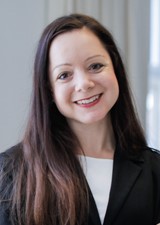
Professor Thalia Anthony
Professor Thalia Anthony researches Indigenous people and the law, with specialisation in Indigenous justice mechanisms and systemic racism in criminal law and procedure. Her research is grounded in legal history and understandings of the colonial legacy in legal institutions. Professor Anthony has developed new approaches to researching and understanding the role of the criminal law in governing Indigenous communities. Her research is developed in conjunction with Indigenous organisations in Australia and overseas. She has written influential books Indigenous People, Crime and Punishment (Routledge 2013) and a Decolonising Criminology (Palgrave 2019). She currently leads an Australian Research Council project that introduces Aboriginal justice reports in sentencing in Australia.
Engagement
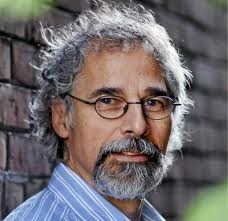
Jonathan Rudin
Jonathan Rudin received his LLB and LLM from Osgoode Hall Law School. In 1990 he was hired to establish Aboriginal Legal Services of Toronto and has been with ALST ever since. Currently he is the Program Director. Mr. Rudin has appeared before all levels of court, including the Supreme Court of Canada including representing ALST before the Supreme Court in R v. Ipeelee. Mr. Rudin has written and spoken widely on issues of Aboriginal justice. He co-wrote the Royal Commission on Aboriginal Peoples’ report on Justice – Bridging the Cultural Divide- and was a member of the Research Advisory Committee of the Ipperwash Inquiry. Mr. Rudin also teaches on a part-time basis in the Law and Society Program at York University. Last but not least, he plays the mandolin and sings with Gordon’s Acoustic Living Room, a group that plays regularly in Toronto and has a number of videos on YouTube.
2019 Visitor

Dr Baz Dreisinger
Dr. Dreisinger works at the intersection of race, crime, culture and justice. She earned her Ph.D. in English from Columbia University, specializing in American and African-American studies. At John Jay she is the Founding Academic Director of John Jay's Prison-to-College Pipeline program, which offers college courses and reentry planning to incarcerated men at Otisville Correctional Facility, and broadly works to increase access to higher education for incarcerated and formerly incarcerated individuals. Dr. Dreisinger's book Incarceration Nations: A Journey to Justice in Prisons Around the World (2016) was heralded by the New York Times, NPR and many more, and was named a notable book of 2016 by the Washington Post. Professor Dreisinger moonlights as a journalist and critic, writing about Caribbean culture, race-related issues, travel, music and pop culture for such outlets as the New York Times, Los Angeles Times and Wall Street Journal, and producing on-air segments about music and global culture for National Public Radio (NPR). Her first book Near Black: White-to-Black Passing in American Culture (2008) was featured in the New York Times and on NPR and CNN. Together with Oscar-nominated filmmaker Peter Spirer, Professor Dreisinger produced and wrote the two nationally aired documentaries about hip-hop, criminal justice and the prison industrial complex. She regularly speaks about justice reform and prison issues on popular news media and in international settings.
Dr. Dreisinger was named a 2017-2018 Global Fulbright Scholar and is working to internationally replicate the Prison-to-College Pipeline, with a focus on the Caribbean and South Africa. She is currently working on a road map for how prison-to-college pipelines and restorative justice can replace mass incarceration as a system of justice.
Engagement
2023 Visitor

Erin Roxburgh, Victoria University of Wellington
Erin is proudly of Ngati Porou and Ngapuhi descent. Her PhD research is a multimodal interaction study of Governance in Maori Governance meetings and the role of interaction in the materialisation of tikanga maori. Erin is currently working as a lecturer in the school of management and teaching sport management. She completed her undergraduate and masters degrees at Victoria University of Wellington.
Erin's research and teaching focus is embedded in te ao Maori and has two focuses. Firstly, how Maori culture is enacted in the workplace, both by organisations and the people who work within those organisations, with special interest in what this looks like within Maori organisations. Her other focus is sporting organisations and how the socio-cultural role that sports organisations play in Aotearoa.
Outside of academia she plays in both the Aotearoa National teams for Handball and Beach handball and also plays premier Netball. She is a passionate sports governor and sits on the Women in Sport Aotearoa Board, the Netball Wellington Board and on the He Wahine kai te Kokiri roopu.
2021 Visitor
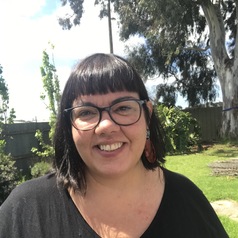
Dr Crystal McKinnon
Crystal McKinnon is a Yamatji woman and is currently working at RMIT as a Vice Chancellor's Indigenous Research Fellow, where she sits within the Social Change Enabling Capability Platform (ECP) and an Australian Research Council Discovery Indigenous Project, Indigenous Leaders: Lawful Relations from Encounter to Treaty. The Discovery Indigenous project looks at lawful encounters between the State and Aboriginal communities of Victoria as historic sovereign practices that may inform current Treaty practices.
Her work has looked at concepts of Indigenous sovereignty, and Indigenous resistance through the use of the creative arts, including music and literature. Crystal is the co-editor of History, Power and Text: Cultural Studies and Indigenous Studies (UTS ePress, 2014), and her work has been published in several books and journals, including Making Settler Colonial Space: Perspectives on Race, Place and Identity (Palgrave, 2010), the Alternative Law Journal, and Biography.
She has extensive governance experience having previously served for a number of years on the Boards of both Flat Out and of the Victorian Aboriginal Community Services Associated Limited, and she is currently a director on the Board of the Victorian Aboriginal Legal Service and she sits on the steering committee for the Law and Advocacy Centre for Women. Crystal has previously worked in both the Aboriginal community organisation and the community legal centre sectors.
2019 Visitor

Associate Professor Sana Nakata
Associate Professor Sana Nakata is Associate Dean, Indigenous and co-director of the Indigenous-Settler Relations Collaboration at the Faculty of Arts at The University of Melbourne. Trained as a lawyer and political theorist, her research is centred upon developing an approach for thinking politically about childhood in ways that improve the capacity of adult decision-makers to act in their interests.
She has recently completed an ARC Discovery Indigenous Research Fellowship examining Representations of Children in Australian Political Controversies (2016-2019). She is the author of Childhood Citizenship, Governance and Policy (2015), and along with co-director Sarah Maddison, edits the Springer book series: Indigenous Settler Relations in Australia and the World.
Engagement
- Event: Legal Pluralism
Centre Affiliation
- Member, Advisory Board, Indigenous Law and Justice Hub
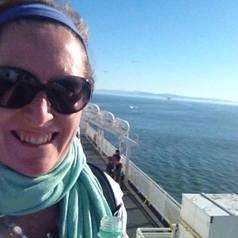
Mary Spiers Williams
Researcher, Australian National University
In 2019 Mary Spiers Williams accepted a joint appointment between the National Centre for Indigenous Studies and the College of Arts and Social Sciences as Subdean for Undergraduate Indigenous Studies. Mary will return full-time to the ANU Law School in 2022. Mary continues to teach Criminal Law there, and facilitates the at ANU College of Law's plan for action under the ANU Reconciliation Action Plan.
Mary currently teaches Indigenous political, civil and legal rights in Australia and convenes the ANU's Undergraduate Indigenous Studies Programme at the ANU. She leads the Interdisciplinary Social Justice Research Hub.
Engagement
- Event: Legal Pluralism
2018 Visitor

Professor Angela Riley
Professor of Law, UCLA School of Law
Angela R. Riley is Professor of Law at UCLA School of Law and Director of UCLA's Native Nations Law and Policy Center. She directs the J.D./M.A. joint degree program in Law and American Indian Studies and is the UCLA campus representative on issues related to repatriation under the Native American Graves Protection and Repatriation Act (NAGPRA). Professor Riley's research focuses on indigenous peoples’ rights, with a particular emphasis on cultural property and Native governance. Her work has been published in the Yale Law Journal, Stanford Law Review, Columbia Law Review, California Law Review, Georgetown Law Journal and numerous others.
Engagement
- Event: Owning ‘Red’: A Theory of Indian (Cultural) Appropriation event
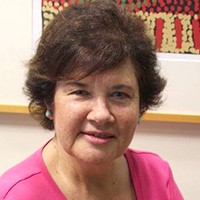
Dr Christine Black
Senior Research Fellow, Melbourne Law School
Dr C.F. Black is the Indigenous Scholar in Residence at the Melbourne Law School. She is also an Associate Professor adjunct to the Griffith University Centre for Coastal Management. Dr Black is a descendant of both the Kombumerri and Munaljahlai peoples. Whilst at the Melbourne Law School She has a PhD from the Griffith Law School. Her thesis focused on bringing forth the concept of Indigenous Jurisprudence in the Australian context. Black has made story her ‘legal structure’ in which to convey knowledge pertinent to the understanding that the Land (Earth) as the source of the law, as juxtaposed to the Common Law concept of land as property.
A future publication with Routledge will take this same legal stand point to discuss the ethics of Autonomous Algorithmic decision-making systems (AADMS) through the lens of mythology and ancient stories. She is also developing research with Native American and South American colleagues around the understanding of plant consciousness and the role of plants in Indigenous societies as knowledge holders. Her first publication on the issue is On Lives Lived with Law: Land as Healer, (Law, Text Culture Jl.). Her key research areas: Indigenous Jurisprudence, ethical issues relating Artificial Intelligence and other related technology, landscape and plant consciousness.
2017 Visitor
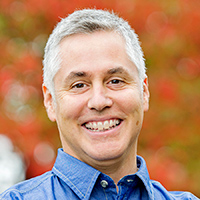
Professor John Borrows
Senior Fellow (Melbourne Law Masters)
University of Victoria Law, Canada
John Borrows BA, MA, JD, LLM (Toronto), PhD (Osgoode Hall Law School), LLD (Hons, Dalhousie & Law Society of Upper Canada) FRSC, is the Canada Research Chair in Indigenous Law at the University of Victoria Law School in British Columbia. His publications include Recovering Canada: The Resurgence of Indigenous Law (Donald Smiley Award for the best book in Canadian Political Science, 2002); Canada’s Indigenous Constitution (Canadian Law and Society Best Book Award 2011); Drawing Out Law: A Spirit’s Guide (2010); Freedom and Indigenous Constitutionalism (Donald Smiley Award for the best book in Canadian Political Science, 2016); and The Right Relationship (with Michael Coyle, Ed.), all from the University of Toronto Press. John is Anishinaabe/Ojibway and a member of the Chippewa of the Nawash First Nation in Ontario, Canada
Centre Affiliation
- Member, Advisory Board, Indigenous Law and Justice Hub
MLS provides a range of opportunities, programs of study and academic and career support for Indigenous students. The Indigenous Law and Justice Hub is also does a range of education work about Indigenous legal interests which may be particularly of interest to current and future Indigenous students. You can find out more on the Hub's Teaching page.
Our Programs
-
Indigenous Students and the Juris Doctor
If you already have an undergraduate degree in a discipline other than law, the Melbourne Juris Doctor (JD) equips you with the skills and knowledge to take a leading role in a range of careers including legal practice, business, government and community organisations.
Learn more -
Indigenous Students and the Melbourne Law Masters
The Melbourne Law Masters (MLM) program offers masters degrees, graduate diplomas, specialist certificates and single subjects across 26 specialist legal areas to deepen knowledge and understanding in a broad or specialised area of law.
Learn more -
Indigenous Students and Graduate Research Degrees
Melbourne Law School is committed to providing outstanding research training for our PhD and MPhil students.
Learn more

Student support
Indigenous students are an important part of Melbourne Law School and the wider legal community. A range of student support is also available through the Indigenous Law and Justice Hub.
Supporting our Indigenous students
If you would like to collaborate with the Melbourne Law School in support of our Indigenous students please contact Catrionadh Dobson, Director of Advancement, Humanities, Arts and Social Sciences or Kim Brockett, Development Manager, Melbourne Law School and Faculty of Business and Economics.

Content warning: This website may contain images or names of Aboriginal and Torres Strait Islander people now deceased.